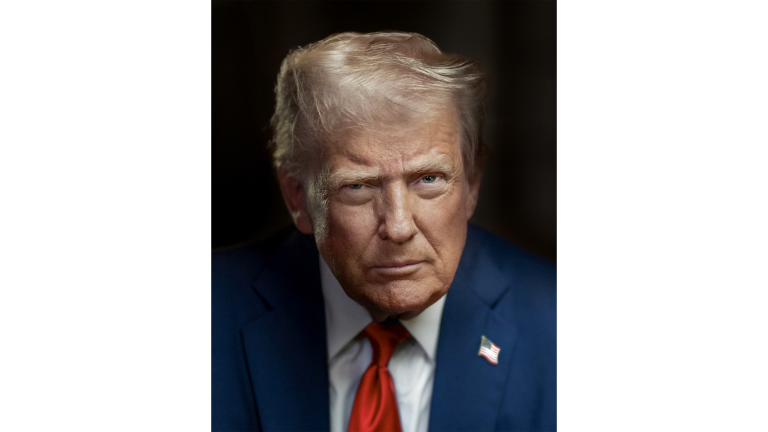
COVID-19 demonstrates multilateral cooperation key to overcoming global challenges
New York: The COVID‑19 pandemic has been a test, demonstrating that multilateral cooperation is the key to overcoming global challenges, Volkan Bozkir (Turkey), President of the General Assembly said on September 29 at the conclusion of the seventy‑fifth session’s unprecedented general debate, as Member States — largely via pre‑recorded video statements — overwhelmingly stressed the need for collective action to tackle common threats and “vaccine multilateralism” to combat the coronavirus.
This was for the first time in United Nations history that global leaders could not physically attend the general debate due to COVID‑19‑related restrictions at Headquarters. “Indeed, the fact that leaders chose to address the General Assembly reflects the role of this world body,” Bozkir said, with the vast majority confirming that multilateralism is the most effective system to address global threats.
Also read:
- United Nations needs serious introspection, Modi tells UNGA
- Global recession could put 2030 SDG agenda out of reach, UN Secretary-General
World leaders had echoed the concept of “ever more united nations” throughout the general debate, he said, as they called on him to focus on pandemic‑related actions: early warning systems, dealing effectively with the crisis and access to vaccines. A disease with no respect for borders requires a collective response, he said, adding that: “COVID-19 is a practice test that exhibits our weaknesses; we must build resilience now for whatever comes tomorrow.”
Even though COVID‑19 has diverted attention and resources from such pressing challenges as conflicts, hunger and global warming, he said climate change still represents the greatest threat to humanity. Welcoming strong support for the 2030 Agenda for Sustainable Development, he said messages heard during the general debate indicated that efforts must continue to reach the agreed upon goals. In terms of security, he said that now is the time to fully implement the global ceasefire.
As the Assembly concluded its general debate with the hope that its next session will be held fully in person, Member States continued to call for cooperative approaches to address the COVID‑19 pandemic, stressing that respect for the international rules‑based order is the cornerstone to overcoming current and future crises. Many shared national approaches to stemming the spread of and developing a vaccine for the coronavirus while underlining the importance of multilateralism in fostering a collective response.
Some member states said the pandemic clearly demonstrates a need to reform multilateral systems, including the United Nations.
“The world is changing and if you don’t change, you risk becoming obsolete,” Nayib Armando Bukele, President of El Salvador, said, adding that the General Assembly has become so irrelevant, no one even discusses the matter. Expressing a desire to see the Assembly transform so it can survive and become a great tool for mankind, he said the pandemic has shown that the United Nations is lacking the leadership required to truly bring the world together. The Organization must prepare for the next global threat, he cautioned. The world has the tools, “but we must take control of our destiny,” he said, adding that working together will make it possible to shape one of the golden ages of mankind.
Heiko Maas, Germany’s Federal Minister for Foreign Affairs, warned the Assembly that the lack of transparency and increasing disinformation in COVID‑19 responses has led to deaths and that the path out of the crisis requires science‑based cooperation based on common rules. “This crisis also shows that international cooperation is neither an ideology nor an end in itself. On the contrary, it delivers results,” he said.
In the debate’s final day, leaders of developing States — including small island developing States — continued to highlight the uneven burden they face in mitigating climate change and securing development financing.
“The greatest contributors to the climate crisis do not bear the consequences proportionately,” said Jerome Walcott, Minister for Foreign Affairs of Barbados, adding that certain countries provide suggestions on how small island developing States must mitigate climate change, while at the same time acting in a way that severely undermines those efforts.
Abdulla Shahid, Minister for Foreign Affairs of the Maldives, said these States face immense debt burdens and recent debt service suspensions which are set to end in early 2021 will result in negligible benefits and called for an extension of debt relief efforts. The pandemic highlights the importance of international cooperation, he said, adding: “In the Maldives, without the support of our friends, our bilateral and multilateral partners, we would not be able to continue weathering this storm”.
“The task is ours to provide guidance and hope to our populations,” said Kenneth Darroux, Dominica’s Minister for Foreign Affairs, International Business and Diaspora Relations, as he stressed that the impact of COVID‑19 has exacerbated the limitations of small island developing States that already face inherent challenges, including in protecting their citizens. Countries could lose an entire generation if they do not rise to the occasion, he stressed.
Ismail Ould Cheikh Ahmed, Mauritania’s Minister for Foreign Affairs and Cooperation, called for pooled efforts to minimize the economic impact of the pandemic, especially in developing countries. He said in Mauritania a drop in gross domestic product (GDP) and fiscal resources have led to a budget deficit and called for the cancellation of debt for African countries so they can address the socioeconomic fallout.
New Zealand’s representative echoed a common thread running through the debate, saying that interdependence with other nations is never more evident as the world tackles COVID‑19. “We need to invest in and trust each other,” he declared, encouraging Member States to support vaccine multilateralism as the world grapples with the pandemic.
In other business, the General Assembly adopted the decision titled “High‑level meeting of the General Assembly to commemorate the seventy‑fifth anniversary of the United Nations” (document A/75/L.2), which outlined procedures for holding the event with regard to COVID‑19‑related restrictions.
The Assembly will conclude its high‑level meeting to commemorate the seventy‑fifth anniversary of the United Nations on Monday, October 26, 2020.
The Assembly will reconvene at 10 a.m. on Tuesday, October 13, 2020 to elect members of the Human Rights Council.
– globalbihari bureau





